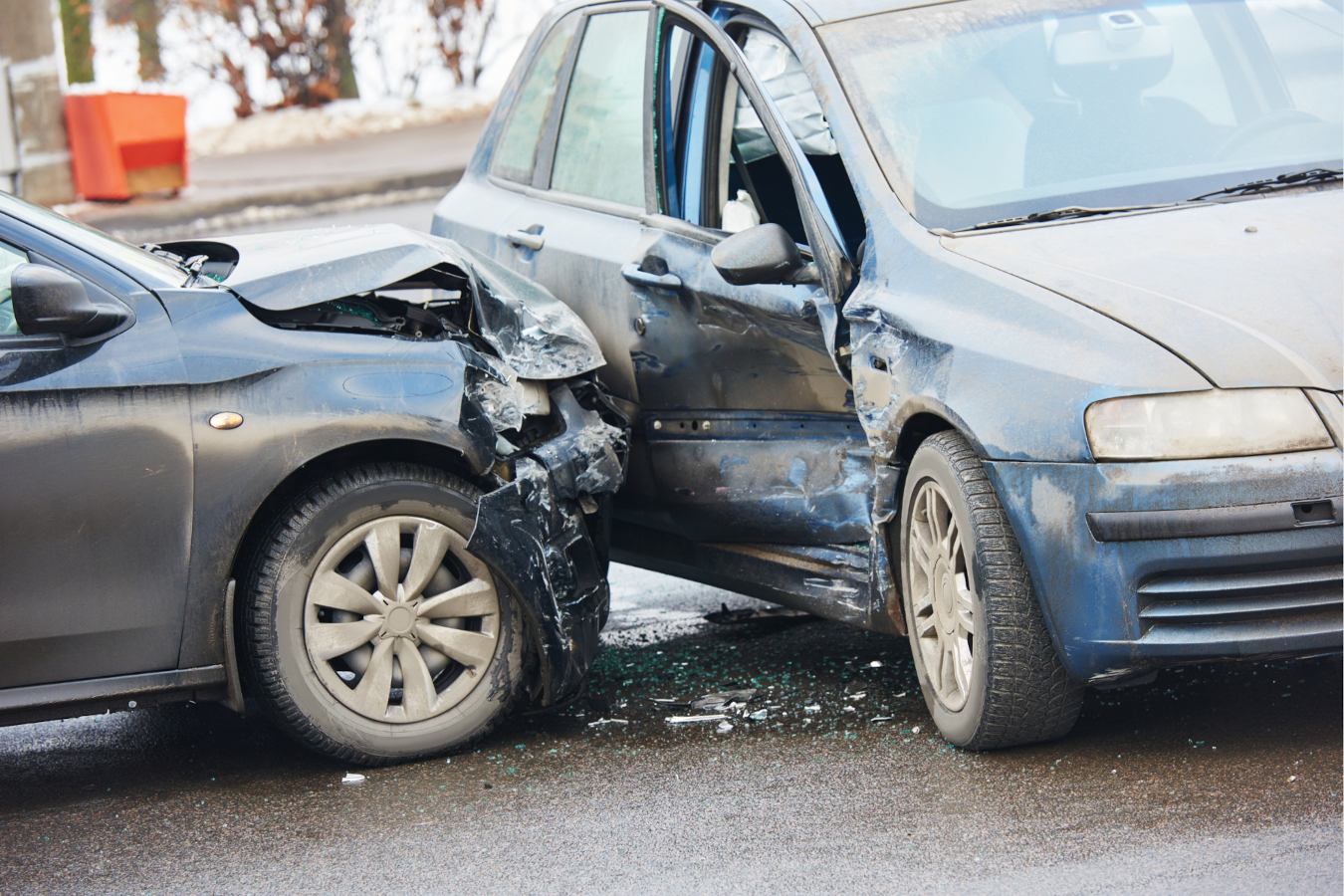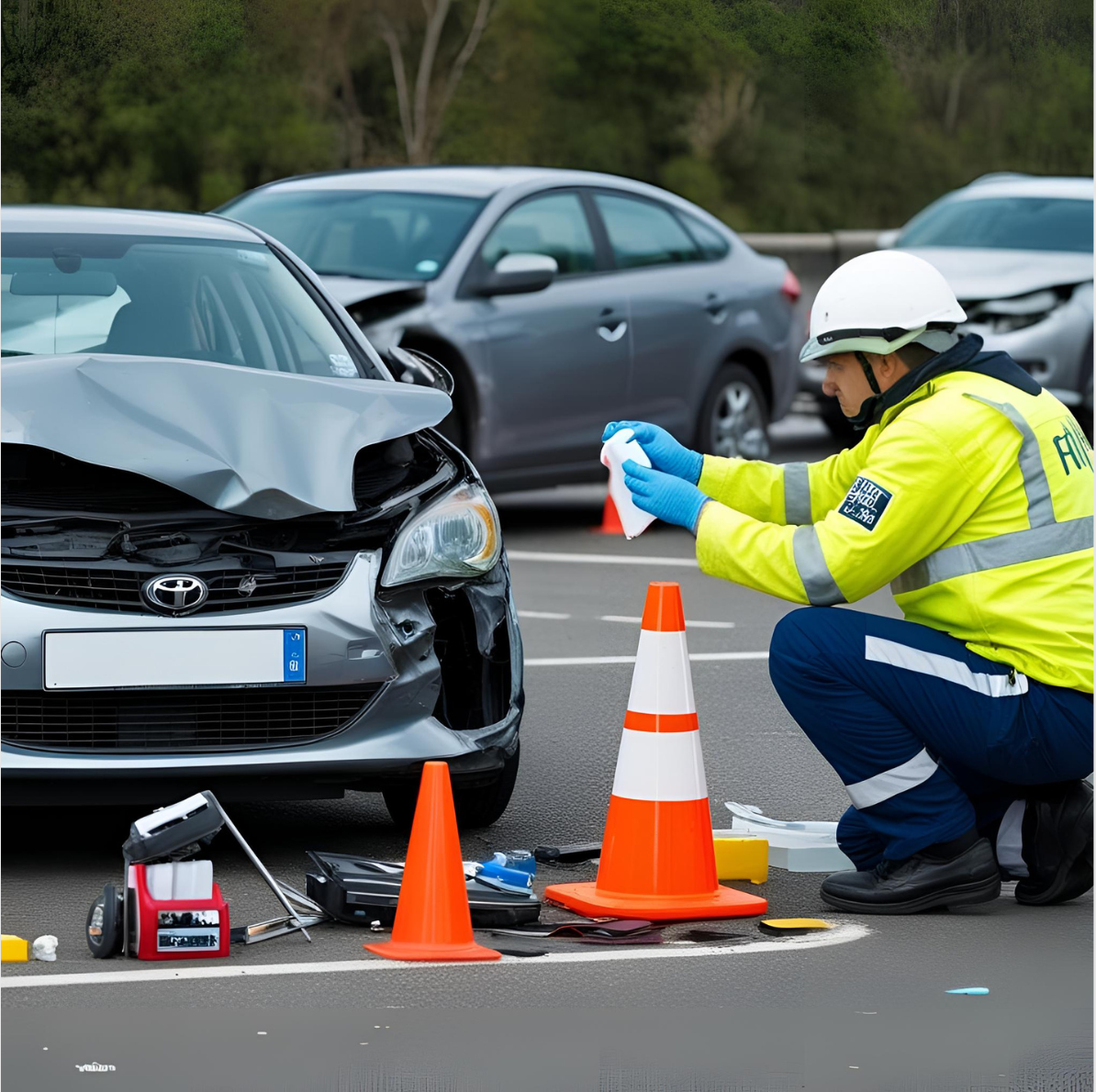The Science Behind Car Accidents: Understanding the Role of Forensic Analysis
Car accidents happen in the blink of an eye, leaving a trail of confusion, chaos, and critical questions in their wake. The science of forensic analysis has emerged as a beacon of clarity, illuminating the path to understanding these often tragic events. Forensic analysis delves into the intricate details of accidents, employing scientific methods to unravel the truth and provide answers that are as precise as they are compelling. For those involved in accident recovery—be it forensic investigators, law enforcement, insurance professionals, or legal experts—understanding the role of forensic analysis is crucial.
Key Takeaways
- Forensic analysis is pivotal in uncovering the truth behind car accidents
- It helps determine the sequence of events leading to an accident
- Forensic evidence is crucial in resolving disputes and misunderstandings
- Findings from forensic investigations can significantly influence legal proceedings
- Forensic experts provide objectivity and accuracy in accident recovery operations
Importance of Forensic Analysis in Car Accident Investigations
Forensic analysis serves as the unsung hero in car accident investigations, unearthing the truth buried beneath the debris. This scientific approach is integral in piecing together the sequence of events that led to an accident, offering a factual clarity that words alone cannot convey. In a world where disputes and misunderstandings abound, forensic evidence stands as an impartial witness, speaking the unvarnished truth.
Forensic experts utilise a variety of methods to reconstruct accidents, examining vehicle damage and impact angles to establish facts objectively. By analysing the minutiae of an accident, these professionals can provide insights into how and why an incident occurred. This clarity often becomes a linchpin in legal proceedings, guiding lawyers and judges towards informed decisions.
The role of forensic science professionals extends beyond mere fact-finding. Their findings can sway the direction of legal outcomes, influencing everything from insurance claims to criminal charges. In this way, forensic analysis not only resolves disputes but also ensures justice is served, making it an indispensable tool in accident recovery operations.
Understanding the Process of Forensic Investigation in Car Accidents
The journey of forensic investigation in car accidents begins at the scene, where experts meticulously examine every detail. The accident scene is a goldmine of information, with tyre marks, vehicle debris, and skid patterns all offering clues to the events that transpired. Forensic scientists collect this physical evidence, preserving it for detailed analysis back in the lab.
Photographic evidence plays a crucial role in reconstructing the accident. By capturing the scene from multiple angles, investigators can create a visual timeline of events. Meanwhile, data from vehicle black boxes—those unassuming yet critical repositories of information—provide insights into the moments leading up to the collision. Speed, braking patterns, and steering inputs are all recorded, painting a picture of the driver's actions.
Once all evidence is gathered, forensic methods are employed to compile a comprehensive report. This report serves as a
cornerstone for further evaluation, offering a detailed account of the accident's dynamics. Through these steps, forensic investigation transforms chaos into clarity, ensuring that every angle is considered in the pursuit of truth.

Key Role of Forensic Experts in Car Accident Cases
Forensic experts are the guiding lights in the labyrinth of car accident cases, armed with specialised knowledge that is crucial for accurate analysis. Their expertise allows them to interpret complex data, drawing conclusions that are both reliable and insightful. In collaboration with law enforcement, these professionals ensure that every investigation is thorough and unbiased.
The role of forensic collision investigators extends into the courtroom, where their expert testimony can be pivotal. A well-presented forensic report can sway jury decisions and influence verdicts, underscoring the importance of these experts in legal proceedings. Their objectivity and credibility lend weight to the evidence, ensuring that justice is not just a concept but a reality.
Beyond the courtroom, forensic experts contribute to broader accident recovery operations. Their insights help refine investigation techniques and improve safety protocols, fostering a culture of learning and improvement. In this way, forensic experts are not just problem-solvers—they are change-makers, driving progress in the field of accident recovery.
Utilising Forensic Evidence in Car Accident Investigations
Forensic evidence serves as the bedrock of car accident investigations, providing a foundation upon which the truth is built. Investigators use this evidence to reconstruct the accident scenario, identifying contributing factors and potential negligence. This process not only clarifies what happened but also distinguishes between accidental and intentional actions.
In the realm of insurance, clear forensic evidence supports claims and determines liability. By providing a factual basis for decisions, forensic findings expedite the resolution of disputes, ensuring that victims receive fair compensation. This clarity is especially valuable in cases where the cause of the accident is contested, offering a path to resolution that is both swift and just.
Forensic science professionals, equipped with state-of-the-art tools and techniques, transform raw data into actionable insights. From digital forensics to physical evidence analysis, their work ensures that every piece of evidence is considered, and every angle is explored. In this way, forensic evidence is not just a tool for investigation—it is a catalyst for justice.

Impact of Forensic Analysis on Insurance Claims in Car Accidents
Forensic analysis plays a crucial role in strengthening the validity of insurance claims, providing evidence that is both reliable and compelling. Insurers rely on forensic findings to assess the extent of damage and determine liability, ensuring that claims are handled with fairness and accuracy.
Evidence from forensic investigations serves as a bulwark against fraudulent claims, offering a factual basis for rejecting false assertions. By providing clarity and transparency, forensic analysis helps insurers make informed decisions, protecting their interests while ensuring that genuine claims are honoured.
The clarity provided by forensic analysis also leads to fairer compensation for victims. By detailing the specifics of an accident, forensic reports ensure that victims receive what they are rightfully owed. In this way, forensic analysis not only resolves disputes but also restores balance, offering a path to justice that is as fair as it is efficient.
Legal Outcomes of Forensic Investigations in Car Accident Cases
Forensic investigations often serve as the fulcrum upon which legal outcomes pivot, determining the direction and resolution of proceedings. Courts rely heavily on forensic evidence to establish culpability and responsibility, using it as a factual basis for decisions that hold significant weight.
Expert testimony from forensic investigators can sway jury opinions and influence verdicts, highlighting the importance of comprehensive and accurate forensic reports. These findings can lead to settlements, avoiding the need for protracted and costly legal battles. In this way, forensic analysis not only clarifies the facts but also facilitates resolution, ensuring that justice is both swift and fair.
Legal professionals utilise forensic reports to build robust cases, leveraging the credibility and objectivity of forensic evidence to support their arguments. This reliance underscores the critical role that forensic analysis plays in the legal sphere, offering a path to resolution that is grounded in fact and fairness.
Case Studies Highlighting the Significance of Forensic Analysis in Car Accidents
Real-world cases illuminate the transformative power of forensic analysis in car accident investigations, demonstrating its ability to resolve even the most complex scenarios. These case studies offer a window into the difference forensic analysis can make, showcasing its role in achieving justice where it might otherwise remain elusive.
In one notable case, forensic evidence helped uncover the true cause of a multi-vehicle collision, revealing a mechanical failure that had gone unnoticed. This revelation not only resolved the dispute but also prompted recalls and safety improvements, demonstrating the broader impact of forensic analysis.
By examining past incidents, forensic professionals can refine their methods and approaches, learning from each case to improve future investigations. These case studies provide invaluable insights, offering lessons that extend beyond individual cases to impact the entire field of accident recovery.
Practical Applications of Forensic Analysis in Determining Fault in Car Accidents
Forensic analysis serves as a precision tool in determining fault and responsibility in car accidents, pinpointing the exact causes and contributing factors. Investigators use forensic findings to assign blame accurately, distinguishing between mechanical failures and human errors.
This analysis supports fair and just resolutions in accident disputes, ensuring that responsibility is assigned where it truly belongs. By providing a factual basis for decisions, forensic evidence helps resolve disputes swiftly and equitably, offering a path to justice that is both clear and compelling.
Beyond individual cases, the practical applications of forensic analysis extend to improving road safety awareness. By identifying common causes of accidents, forensic professionals can contribute to broader safety initiatives, fostering a culture of prevention and awareness that benefits all road users.
In conclusion, forensic analysis is a linchpin in the investigative process of car accidents, offering clarity and truth in the aftermath of chaos. Through meticulous examination and expert interpretation, forensic experts play a critical role in resolving disputes, influencing legal outcomes, and improving road safety. As you navigate the complexities of accident recovery, consider the transformative power of forensic analysis. How might a deeper understanding of forensic science reshape our approach to accident recovery and justice?
Frequently Asked Questions
What is forensic analysis in the context of car accidents?
Forensic analysis in the context of car accidents involves the scientific examination of evidence such as skid marks, vehicle damage, and road conditions to determine the cause of the accident. This analysis helps in understanding the sequence of events leading up to the crash.
How can forensic analysis help in determining fault in a car accident?
Forensic analysis can help in determining fault in a car accident by providing concrete evidence such as tyre marks, vehicle speed, and impact angles. This evidence can be crucial in reconstructing the accident and establishing accountability.
What role does forensic analysis play in legal proceedings related to car accidents?
Forensic analysis plays a crucial role in legal proceedings related to car accidents by providing objective evidence that can be presented in court. This evidence can help in resolving disputes, determining liability, and ensuring justice for all parties involved.
Who conducts forensic analysis in car accidents?
Forensic analysis in car accidents is typically conducted by trained professionals such as accident reconstruction experts, forensic engineers, and forensic scientists. These experts use specialised tools and techniques to analyse the evidence and draw conclusions about the accident.
How long does a forensic analysis of a car accident typically take?
The duration of a forensic analysis of a car accident can vary depending on the complexity of the case and the amount of evidence available. In general, it can take several days to weeks to complete a thorough analysis and produce a detailed report with findings and recommendations.

